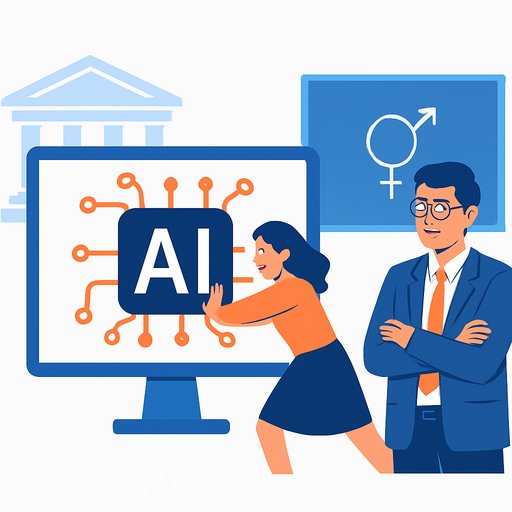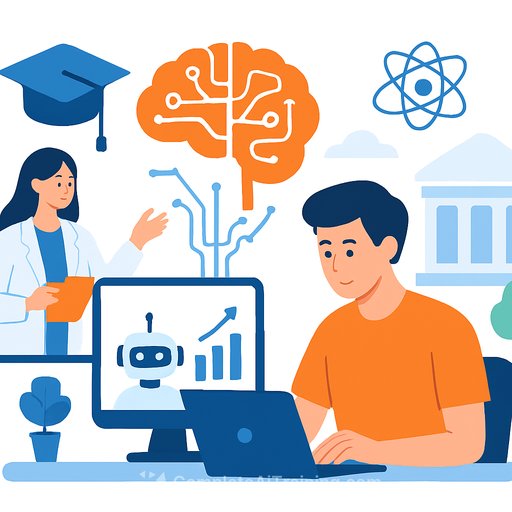Argonne Advances AI in STEM Education for Workforce Readiness
On September 19, nearly 200 STEM educators and academic leaders from across Illinois met at the U.S. Department of Energy's Argonne National Laboratory for the first AI STEM Education Summit: "One Ecosystem, Many Pathways - Building an AI-Ready STEM Workforce." The focus was clear-how AI is changing scientific discovery and what that means for classrooms, programs and career pathways.
Participants explored practical applications of AI in research, teaching and workforce development. They left with models, best practices and new partnerships to help students prepare for the jobs ahead.
Why this matters for educators
- AI is now part of core scientific workflow-materials discovery, energy systems, medical research and automated experiments.
- Programs that integrate AI skills early will improve student outcomes and career readiness across high school, community college and university levels.
- Cross-sector partnerships reduce guesswork and accelerate curriculum updates.
What educators saw and learned
- How Argonne applies machine learning, data science and high-performance computing to real problems.
- Briefings from AI experts representing Argonne, Intel and Genetech, plus education leaders from EDC, CPS, IMSA, Illinois Tech, Waukesha County Technical College and Chicago State University.
- Panel discussions and interactive breakout sessions with practical strategies for integrating AI concepts into STEM classrooms.
- A guided tour of the Aurora exascale supercomputer at the Argonne Leadership Computing Facility, connecting classroom learning to large-scale scientific work.
Aurora and the scale of opportunity
Argonne's new Aurora exascale supercomputer-among the fastest in the world-enables research at a scale that was out of reach just a few years ago. For education leaders, this underscores the need to teach data literacy, AI fundamentals and computational thinking as part of core STEM instruction.
The Argonne Leadership Computing Facility is a U.S. Department of Energy Office of Science user facility, offering a model for how public resources support education and workforce development.
Practical steps you can apply now
- Integrate AI across courses: core concepts in math and science, plus applied projects in labs and capstones.
- Use authentic datasets from energy, health or materials science to teach model building, evaluation and limits.
- Teach responsible AI: bias, data provenance, model interpretability, safety and human-in-the-loop workflows.
- Build partnerships with industry, national labs and universities for guest talks, internships and joint projects.
- Offer short teacher PD sprints on prompt design, data pipelines and classroom AI tools; iterate each term.
- Start small: pilot one AI-infused module per course, measure outcomes, then scale what works.
Collaboration as the multiplier
The summit showed how educators, researchers, industry and government can align on shared goals and move quickly from ideas to implementation. Argonne's leadership in responsible AI and its commitment to workforce readiness set a clear path for ongoing collaboration.
The lab will continue working with partners to expand access to resources, share what works and help students thrive in an AI-driven economy.
Want help building AI capacity across roles?
Explore curated training paths to upskill faculty, staff and students by discipline or job function.
Note: The ALCF is a DOE Office of Science user facility.
Your membership also unlocks:






